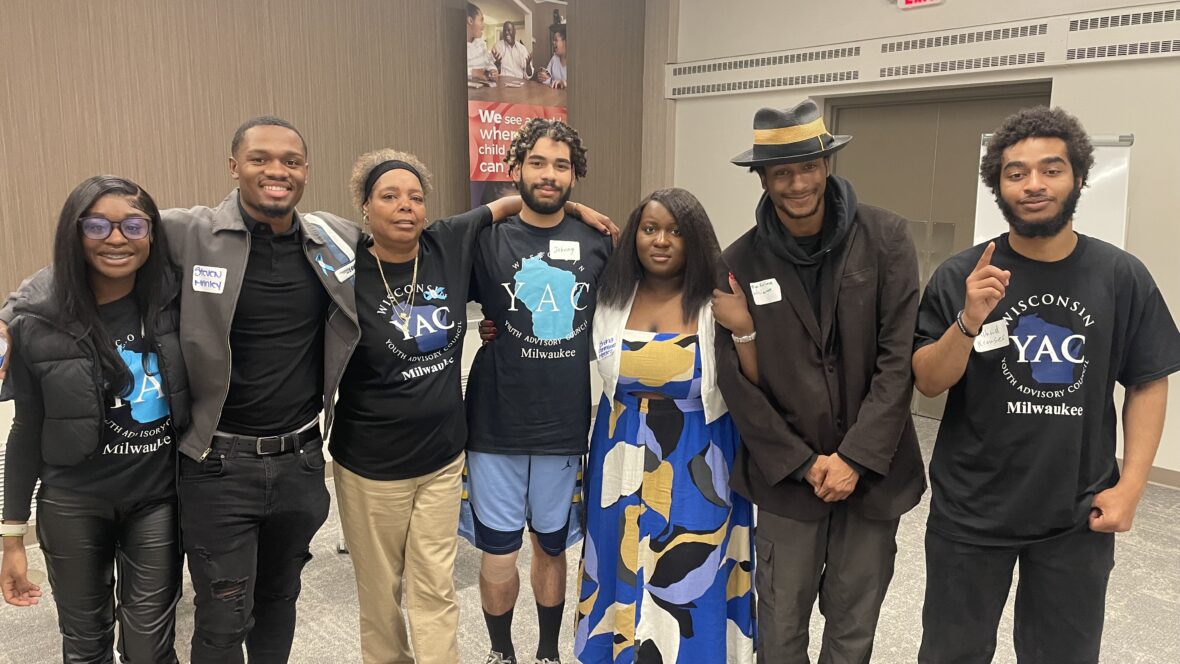Their Voices: Former Foster Care Youth Share Stories of Strength and Resilience

When children in foster care turn 18 and age out of the system, many are left struggling to find a place to live, a job, or don’t know how to apply to school because they lack the support they need. Wellpoint Care Network’s Youth Transitioning to Adulthood (YTA) program aims to bridge that gap and provide resources and support for young adults during those critical years.
“There are often basic life skills you’re lacking when you’re in the foster care system,” said Michael Kroser, who felt overwhelmed after aging out of the system. “I didn’t have that many people in my circle. I felt like I didn’t really belong.”
“I’d always felt like there wasn’t really a home that I could come to and be embraced by people for who I am, but this environment gave me that.”
YTA MEMBER MICHAEL KROSER
Through his time in YTA, Michael started to realize how much the programming was affecting him and his outlook.
“Just listening to the adults they would have come and talk to us — whether it was therapists, businessmen, chefs — I learned a lot,” he said. “I’d always felt like there wasn’t really a home that I could come to and be embraced by people for who I am, but this environment gave me that.”

Foster Youth Statistics
Data compiled by the National Foster Youth Institute shows that without support services like YTA available, when former foster youth turn 18:
- 20% will become instantly homeless
- Only 50% will have gainful employment by age 24
- 70% of the women will become pregnant before age 21
- Less than 3% will earn a college degree.
In any given year, there are roughly 175 to 225 active youth in YTA. The program is completely voluntary and available to youth who have aged out of foster care through the age of 23.
Setting Goals and Planning for success
Wellpoint Care Network uses a strengths-based approach that encourages youth who have exited (or will be exiting) Milwaukee County foster care to set, track and achieve life goals. Our experienced case managers provide guidance, support and community resources to help them create an individualized Plan for Success.
“I honestly thought that when I aged out of foster care I was just going to be homeless,” said Briana Dominguez Mendez. “I didn’t learn how to balance a checkbook, I didn’t know how to pay my bills, I didn’t know how much rent would cost, I didn’t have any life skills. I felt lost, I was in a lot of pain.”
YTA connected Briana with other young women who understood her experience. “They could really see me and understand what I had gone through and hold my hand and tell me it was going to be fine,” she said. “YTA provided me the voice that I lost in foster care.”
Breaking the cycle of trauma
For Johnny Spingola, aging out of foster care was an eye-opening experience. While he was lucky enough to have a support system of caring individuals in his community, he began to realize that not everyone did.
“No person should have to go through that experience alone, but so many do,” said Johnny. “I believe that’s the reason we see so many problems in our community. People who are ignored become people who hurt other people. They’re never given the resources to heal. They’re searching for something that should have been given to them but never was.”
YTA case workers don’t only provide youth with resources to help heal, they can also give them the support needed to take the next steps in life. For Sadorian Williams, that meant higher education and a degree in Culinary Arts.
“It was only after my case worker helped me get my ID, social security card and birth certificate that I was able to apply for college,” said Sadorian. “Through her I learned how to be persistent and go after the things I want. I am thankful for her and for the program for helping me get connected with the resources I need.”
“YTA provided me the voice that I lost in foster care.”
YTA MEMBER BRIANA DOMINGUEZ MENDEZ
Members of YTA are also eligible for unique opportunities like the Wisconsin Youth Advisory Council (YAC), whose mission is to work with governmental systems to inspire change through education, advocacy, training and awareness.
Steven Manley was recently nominated president of the Youth Advisory Council. Looking back, he feels his experience with YTA has helped him mature.
“Living on my own for the first time was a real eye opener,” said Steven. “You go back to square one and feel like you don’t have anyone. But my case worker helped me get my own place and prepare for going back to school. Looking back, it made me build on the positive relationships I was already creating within YTA.”
The testimonials quoted in this article came from a recent panel hosted by Wellpoint Care Network to celebrate Foster Care Awareness Month.
Learn more about Wellpoint Care Network’s Youth Services Programs.








